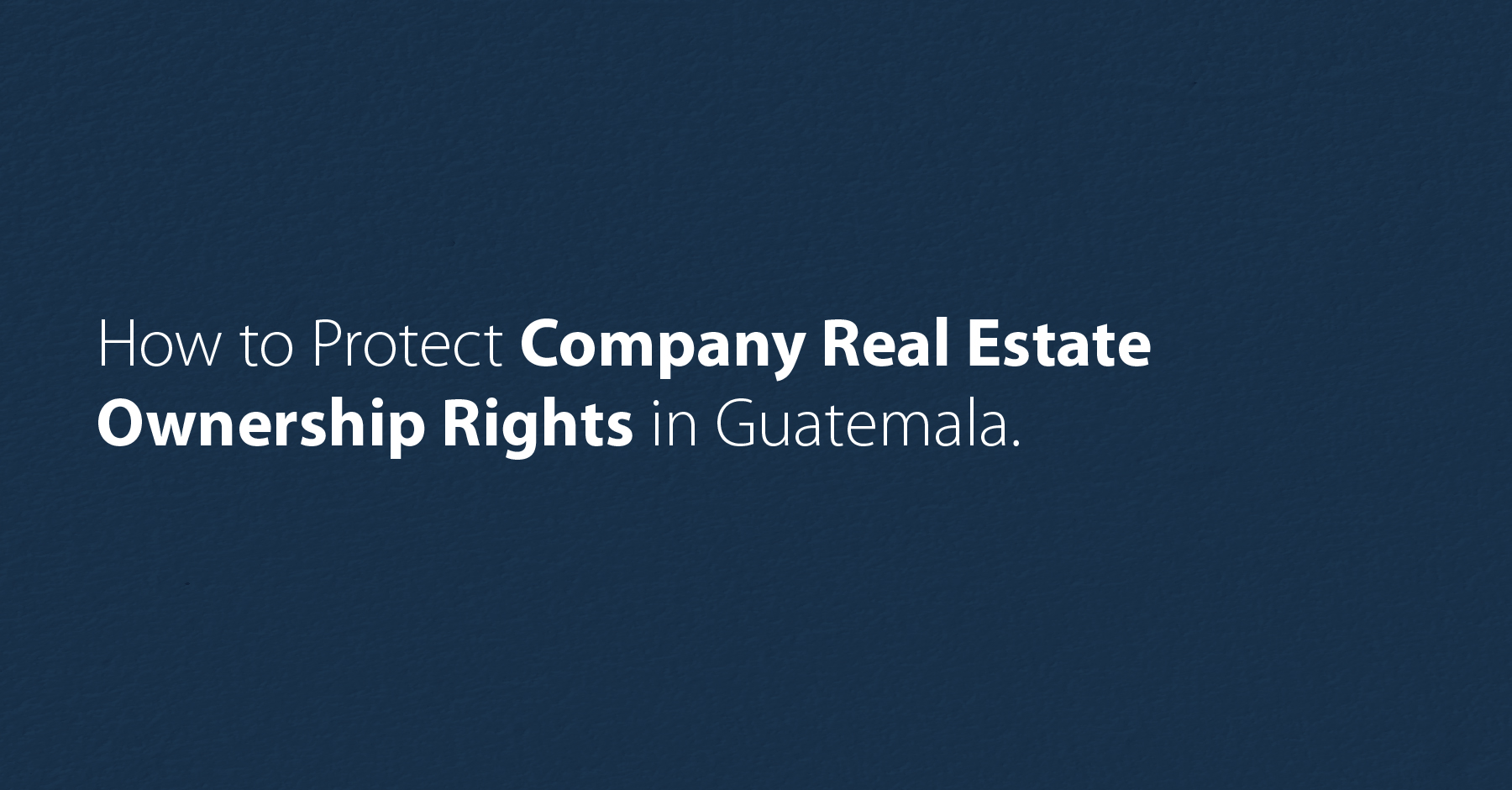The business environment offers a wide range of opportunities and benefits. However, it also presents risks, especially for real estate holdings. Despite the many associated benefits of owning real estate, companies may find that their properties are targets for fraud and scams.
The business environment offers a wide range of opportunities and benefits. However, it also presents risks, especially for real estate holdings. Despite the many benefits of owning real estate, companies may find that their properties are targets for fraud and scams.
Malicious practices, ranging from the creation of false title deeds to maneuvers aimed at dispossessing companies of their assets, are more common than we might think. These acts can be perpetrated by external actors and, unfortunately, by individuals within the same organization who seek to benefit at the expense of society.
Fraudulent tactics are sophisticated and conducted so meticulously that early detection is difficult. For example, the falsification of legal documents or simulation of transactions can occur with a degree of professionalism that, at first glance, appears legitimate. In addition to these crimes, the manipulation of records or the usurpation of the identity of legal representatives broadens the threat spectrum even further.
Therefore, in Guatemala, where real estate is a valuable asset and a potential target, companies must arm themselves with the knowledge and tools necessary to protect their investments. Anticipating possible risks, being informed about the most common fraud schemes, and knowing the available defense and response mechanisms are vital initial steps in this direction. Companies can only hope to safeguard their real estate assets through adequate preparation and constant vigilance.
The current landscape: The vulnerability of corporate real estate
Traditionally considered a safe and sound investment, real estate has experienced significant challenges in recent years. Technological advancement, while providing tools to simplify and improve property management and marketing, has also offered criminals new avenues to perpetrate fraud with a sophistication previously inconceivable.
In today’s corporate context, it is alarmingly common for companies to discover that they have been victims of crimes that jeopardize the ownership of their real estate assets. This reality has been accentuated due to the ability of some criminals to replicate and falsify legal documents expertly, taking advantage of possible deficiencies in registration and control systems.
Besides false legal representatives, other methods include forging signatures, tampering with notary seals, and even creating fictitious documents purporting to be endorsed by legitimate legal entities. On occasion, perpetrators collude with unscrupulous professionals within the same legal community.
Such criminality results in detriment to a company’s asset base by losing valuable property and also triggers collateral repercussions. The company may forfeit investor confidence, its corporate reputation damaged irreparably, and consequently, its financial and operational stability seriously threatened.
The magnitude of such risks dictates that companies remain alert and informed and enforce proactive measures to protect their real estate assets. Vigilance is more than a simple strategy. It is unavoidable and necessary.
Immobilization of real estate
One of the most effective and recommended mechanisms to protect the real estate assets of a company in Guatemala is the immobilization of these assets in the General Property Registry (RGP). This measure prevents registered real estate from being sold or encumbered without the express consent of the owner, serving as a shield against theft, fraud, or dispossession. The immobilization of real estate can be done online or in person. Below are the steps required for each procedure:
Online process:
- Preparations: The owner must submit a written statement, both the original and a duplicate, to the RGP offices, with signature and fingerprints legalized by a notary.
- Digitization: The document must be scanned (in PDF format) and electronically signed by the notary.
- Submission and payment: The digitalized document must be uploaded to the RGP online portal, generating a code charging Q.160.00 per real estate asset. The total amount due is payable at any Banrural agency or through Banrural Virtual.
In-person process
Documentation: Similar to the online process, the owner must present a petition to the RGP offices with a notarized signature and a fingerprint.
- Biometric verification (optional): If the owner desires biometric immobilization, the fingerprints can be registered directly at the RGP offices at no additional cost.
- Payment: The immobilization fee is Q.160.00 per real estate asset, payable at Banrural.
A step towards legal security
Securing tangible assets such as real estate is a primary task. These assets, which often represent significant value to a company, can be the target of individuals and entities with fraudulent intentions. Protecting the material value of real estate is commercially important but also symbolizes to society the stability of these assets.
The immobilization of real estate is an invaluable tool in this scenario. Through this mechanism, companies not only create an obstacle for those seeking to perpetrate fraud but also send a clear message about their commitment to integrity and transparency. This measure, added to constant due diligence and informed management, is the way forward to strengthen the confidence of shareholders, investors, and stakeholders in the stability of society.
Rodolfo Salazar
Partner
Guatemala
E-mail




